Jay K.
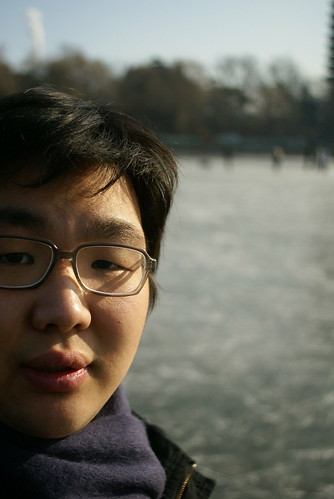
[Me on the frozen lake in my school!]
Ep.23 To Live
We need a quick catch up because it’s been so long since I uploaded the last one. Actually, I wrote two more episodes in December, prior to this one. However, I decided to not upload that one until the time comes. It’s too confidential. Sorry. Anyway, now I have three episodes to upload, and please enjoy reading them.
Today I want to talk about something less personal; so I will talk about ideology this time. After all, I study political science; I like to talk about these stuffs. I always think that theory, a set of proposed principles, is essential for everything in our life. Theory is what shapes people’s thinking and behavior. That includes not only our political system, but also economic system, religious beliefs, and scientific researches. Ideology then consists of a systemic set of these theories. In my opinion, ideology is responsible for many things that happen in this world, from disastrous wars to glorious human progress; I know I am talking vaguely here, because I am talking about political science.
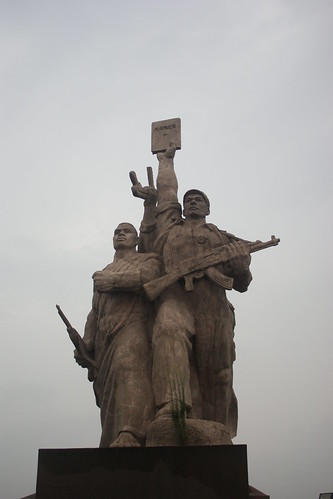
[For the Revolution!]
It is not surprising that China is ideologically different from America. You guys will all know that China is still a communist country unlike America or the rest of Western nation. However, you guys might know that how ideological difference is closely related to our daily life. What I’m saying is that manifestation of ideology is not something that only appears on the textbook or boring scholastic essay, but it is actually visible in our everyday life.
I will give you some examples that I encountered in real life. The first instance happened in my Chinese class. It is true that every single Chinese textbook has a chapter talking about love and relationships. My textbook isn’t an exception and we were learning a chapter about relationships. We were having a discussion in class about each person’s view on relationships and their own experiences. We asked our teacher about her view on relationship. My Chinese teacher, who is on her mid fifties and grew up her whole life in Beijing, answered to our question: “love? During my generation, it was revolutionary.” Revolutionary? I asked myself, how can love be revolutionary?
She explained further. She read one Russian communist literature during her youth and decided to be a single for her whole life. She wanted to be remained unmarried so that she could devote her life for the country and the mighty revolution. Today, Chinese young people of course do not think in this kind of mindset, but it is very interesting to know that only few decades ago this kind of mindset even existed.
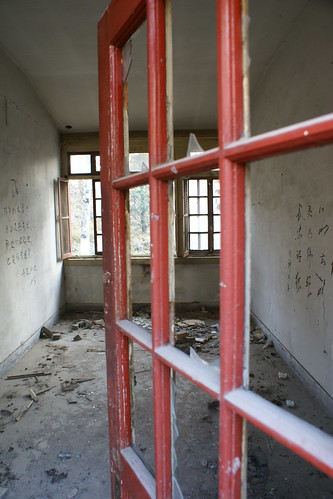
[The Comrade Mao]
One day I was talking to my language partner. He is a sophomore and studies political science like me. He gives a lesson on Chinese politics to me and I introduce American politics to him. Recently we are both busy so not having these sessions. Anyway, one day he told me that he was looking forward to be a member of the Communist Party. He wasn’t joking at all. He wants to be a member because if you want to get into politics in China, that’s the only way. He understands well that the Party controls everything and sometimes it is not fair. However, it seems to me that he accepts the rule of game as long as he is able to play that game. He is willing to play the game of Chinese politics. He is also an enthusiastic proponent of the idea that China is not suited with western democracy. He firmly believes that China has to be governed by the current system.
I also talked about how many foreign websites and youtube videos are blocked in China. As I said above, ideology manifests itself in our daily life. Living many years in America, I forgot how each nation has its own ideology. I remember how I was shocked at ideological difference between Korea and the U.S. Now coming to China, I again realize there are ideological differences between nations and the gap between China and America is especially huge.
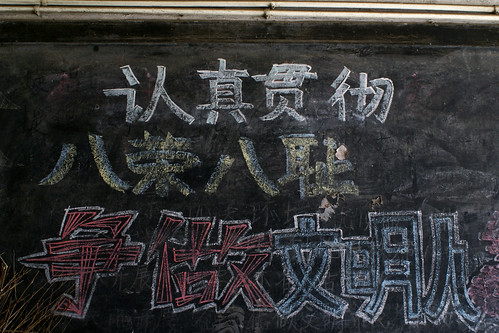
I also talked about how many foreign websites and youtube videos are blocked in China. As I said above, ideology manifests itself in our daily life. Living many years in America, I forgot how each nation has its own ideology. I remember how I was shocked at ideological difference between Korea and the U.S. Now coming to China, I again realize there are ideological differences between nations and the gap between China and America is especially huge.

[The board that was wrriten during the Culture Revolution (in Qingdao)]
Few days ago I watched a Chinese movie. Many people recommended this movie and I bought the DVD few weeks ago but didn’t watch it for some reason. I finally watched it on Saturday evening.
The movie is called “To Live” or “活着” in Chinese. Karen, a Korean friend I met in China, actually decided to come to China after watching this movie. One of my Chinese friends, who studies film, also regards it as one of the best Chinese movies. The movie is about one family that struggles to survive throughout historical turmoil over four decades. Fu Gui’s family goes through the Chinese Civil War, Communists’ capture of the government, and the Cultural Revolution.
The movie narrates one’s life in a humorous and ironical way. Despite the ideological shifts and turbulences, Fu Gui and his family live on. The ideological shifts actually affect his life—it killed his only son and later only daughter—but he continues to live. The movie shows how China had been a really ideological different country few decades ago. It also shows that even in that radically different society, people are not much different. People still love their family; people still regret and make mistakes; people still forgive others; people still have hopes.

I know that ideology shapes how people think. I’m experiencing that phenomenon here. However, I also know that there are innate human natures that even ideology or theory cannot shape. I think that’s because all ideologies are also based on human nature.
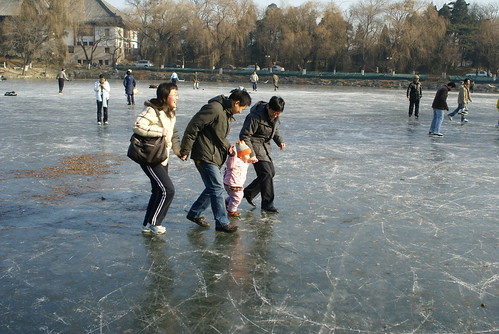
[Yay!]

[Yay!]
[The time for graduation pictures!]
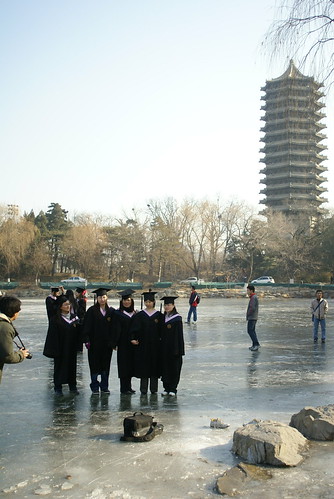
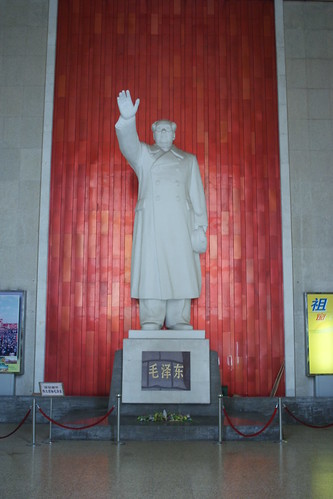
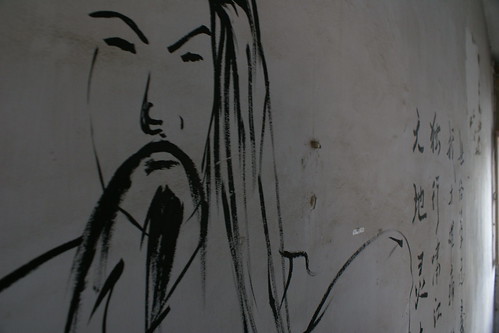
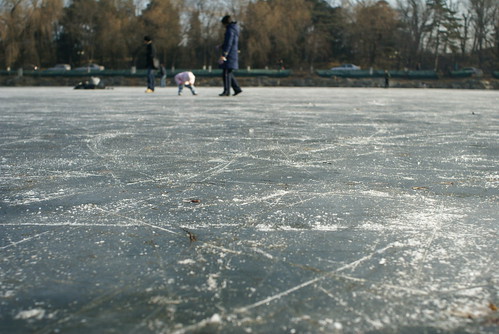
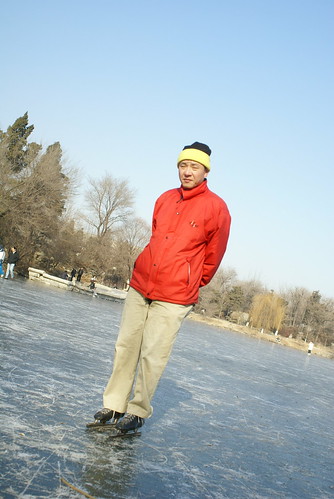

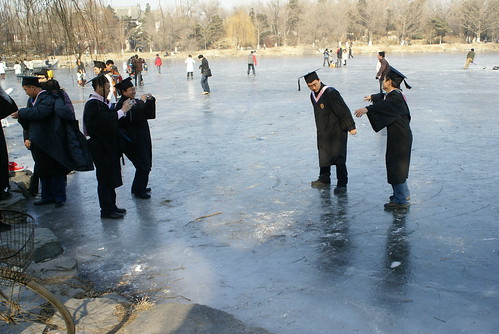
No comments:
Post a Comment